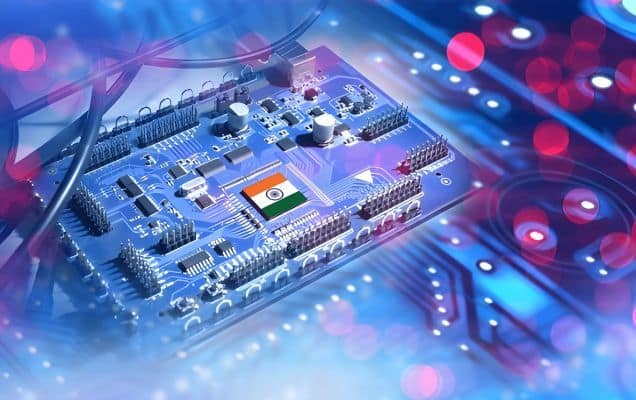The Union Cabinet chaired by the Prime Minister, Shri Narendra Modi, today gave its approval for the India’s first integrated National Policy for Skill Development and Entrepreneurship 2015. The Policy acknowledges the need for an effective roadmap for promotion of entrepreneurship as the key to a successful skills strategy. The previous National Policy on Skill Development was formulated by the Ministry of Labour and Employment in 2009 and provided for a review after five years to align the policy framework with emerging national and international trends.
The Vision of the Policy is “to create an ecosystem of empowerment by Skilling on a large Scale at Speed with high Standards and to promote a culture of innovation based entrepreneurship which can generate wealth and employment so as to ensure Sustainable livelihoods for all citizens in the country”.
To achieve this Vision, the Policy has four thrust areas. It addresses key obstacles to skilling, including low aspirational value, lack of integration with formal education, lack of focus on outcomes, low quality of training infrastructure and trainers, etc. Further, the Policy seeks to align supply and demand for skills by bridging existing skill gaps, promoting industry engagement, operationalising a quality assurance framework, leverage technology and promoting greater opportunities for apprenticeship training. Equity is also a focus of the Policy, which targets skilling opportunities for socially/geographically marginalised and disadvantaged groups. Skill development and entrepreneurship programmes for women are a specific focus of the Policy. In the entrepreneurship domain, the Policy seeks to educate and equip potential entrepreneurs, both within and outside the formal education system. It also seeks to connect entrepreneurs to mentors, incubators and credit markets, foster innovation and entrepreneurial culture, improve ease of doing business and promote a focus on social entrepreneurship.
Appreciation for PM Modi by Citizens for Nurturing an Aspirational Bharat – From Youth Mentorship to Ecological Conservation
PM Modi playd a crucial role in bringng d extinct Cheetah 2India. 1st evr intr continental translocation of a large carnivore.Namibian Cheetah Aasha has given birth to 5 cubs at Kuno National Park.With this birth,cheetah population has grown to 35.Nw24 cheetahs hav been born here pic.twitter.com/NIfbTITVJA
— Rukmani Varma 🇮🇳 (@pointponder) February 9, 2026
Salute @narendramodi ji for the strong India-Seychelles meet—digital ties, healthcare, and sustainable dev in focus. Your clear stance on security & shared prosperity builds unbreakable bonds. Bharat leading with vision! pic.twitter.com/lLSZR48V1u
— Muskan Aggarwal (@AggarwalMahi586) February 9, 2026
#Kerala Is witnessing huge infra upgradation, thanks to Hon #PM @narendramodi Ji’s #AmritBharatStationScheme .
— 🇮🇳 Sangitha Varier 🚩 (@VarierSangitha) February 9, 2026
Shoranur railway station-moving with the times !!
From modest to modern,with improved passenger amenities,better accessibility for a superior travel experience! pic.twitter.com/d21SyjGYSI
Record high! SBI posts ₹21,028 cr profit—strongest ever quarter! Thank you @narendramodi
— ananya rathore (@ananyarath73999) February 9, 2026
ji for reforms, clean banking push & economic stability that made this possible. Public sector banks thriving, India shining! pic.twitter.com/PxbQ1JgIZE
PM Shri @narendramodi Ji’s interaction with students during the 9th edition of Pariksha Pe Charcha once again highlighted the spirit of confidence, calm and clarity.
— Siddaram (@Siddaram_vg) February 9, 2026
A meaningful conversation on handling exam stress, staying focused, and turning challenges into opportunities,… pic.twitter.com/POumPgA0hh
#ModiTheWorldLeader
— Zahid Patka (Modi Ka Parivar) (@zahidpatka) February 9, 2026
PM @narendramodi Ji Greets Japan PM Sanae Takaichi On landmark Snap Election Victory
said India-Japan Special Strategic and Global Partnership plays a vital role in enhancing global peace, stability and prosperity.https://t.co/OWLjfnBXjk@PMOIndia pic.twitter.com/gqezJXUpKu
Thank you @narendramodi ji! “No compromise on terrorism” stance reiterated loud & clear with Malaysia. UNSC support + high-priority sector expansion—your diplomacy builds unbreakable partnerships. Bharat rising tall pic.twitter.com/RhWrAJfvwi
— Mahima Sharan (@MahimaShar19774) February 9, 2026
Qualcomm's 2nm chip taped out in India—major leap in advanced semiconductor design! Grateful to @narendramodi ji for reforms attracting global giants & nurturing homegrown talent. India now shaping tomorrow's tech! #SemiconIndia pic.twitter.com/DngFFsUFH6
— Sonali sharma (@Sonalis91285385) February 9, 2026
PM Modi ji's vision accelerates: India Semiconductor Mission 2.0 to build robust chip ecosystem, attract big investments & create high-skill jobs! From design to fab—self-reliance in semiconductors is now reality. Proud of Atmanirbhar push pic.twitter.com/KXMQfwBj7i
— Seema Sinha (@SSinha30258) February 9, 2026













